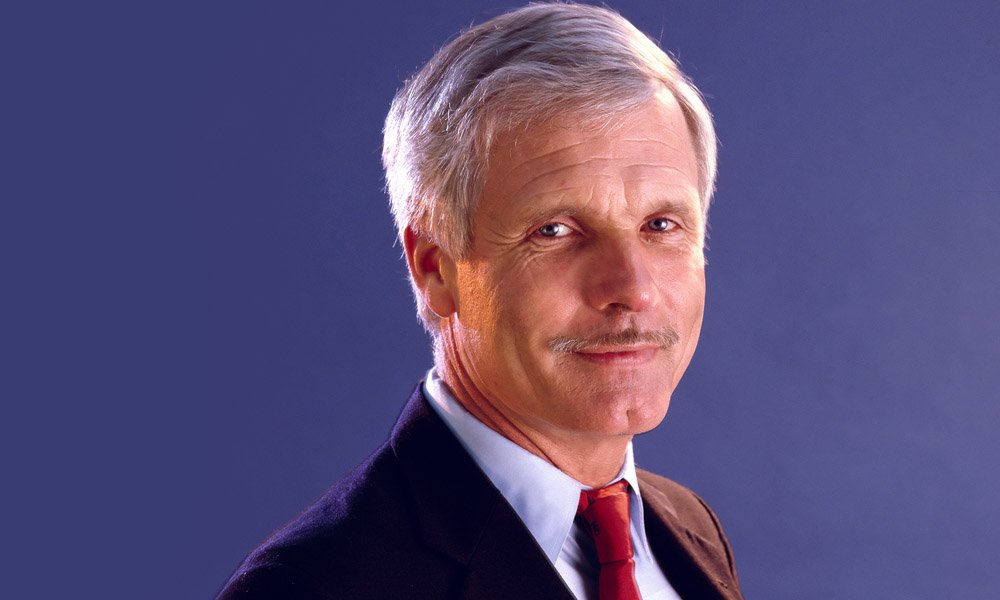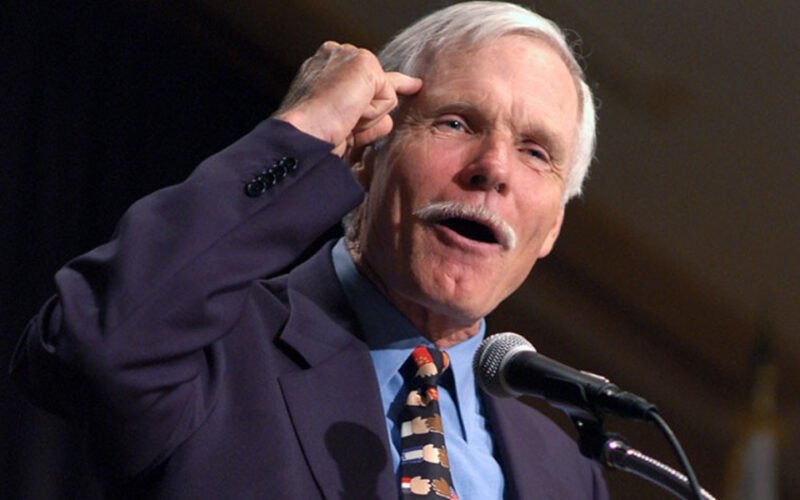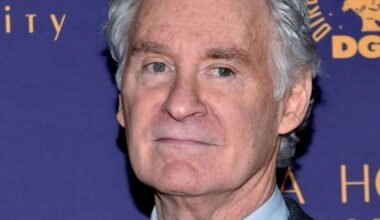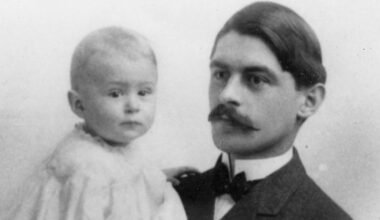Updated on: August 11, 2025
Basic Information
| Field | Details |
|---|---|
| Full name | Robert Edward Turner II |
| Years | 1910–1963 |
| Age at death | 53 |
| Occupation | Billboard magnate; founder of Turner Advertising |
| Region of activity | Southeastern United States (outdoor advertising) |
| Spouse | Florence Rooney (1909–1992) |
| Children | Robert Edward “Ted” Turner III (b. Nov 19, 1938), Mary Jane Turner |
| Notable event | Died by suicide in 1963; son Ted Turner (age 24) assumed control of the family business |
A life sketched in steel and paint
When I picture Robert Edward Turner II, I see a skyline stitched with wooden frames and painted panels — the slow, weathered breath of outdoor advertising in mid-century America. He built a business that read across the horizon: Turner Advertising, a growing concern in the Southeast that sold space to companies who wanted their names seen from highways, from downtown rooftops, from the bustle of postwar life. Billboards are humble monuments: squarefoot empires of color and type, and Robert II ran one of the presses that fed them.
He was born in 1910 and, by the numbers, lived 53 years — enough time to start an enterprise, to marry Florence Rooney, and to raise a family. But facts are brittle; context gives them weight. Turner Advertising was not a celebrity brand the way a broadcast network would become; it was a regional engine, the kind of business you measure in leased panels, vendor relations, and weather-beaten contracts. That practical, gritty commerce is the scaffolding around which the rest of the story unfolds.
The interruption that changed a dynasty
The year 1963 stands like an exclamation point and a question mark in the Turner family ledger. Robert Edward Turner II died that year — by his own hand — leaving a precarious enterprise and two children in his wake. The younger of them, Robert Edward “Ted” Turner III, was 24 years old at the time. You can imagine the ledger of grief and ledgers of invoices colliding in the family kitchen.
Ted inherited not just a business but a responsibility. What reads in hindsight like a simple transfer of assets was in reality a pivot point: a 24-year-old, suddenly steward of a regional advertising firm, would go on to remake the inherited scaffolding into something unprecedented. I tell this part of the story in the present tense when I can — because the moment feels like a live cut in a film: one frame, the death; next frame, a young man at his desk, making decisions that will ripple across media, sports, and philanthropy for decades.
Numbers anchor this scene: 1963 — Robert II’s death; 1938 — Ted’s birth year (November 19, 1938), which makes that 24-year-old moment sharp and exact. Those numbers are heartbeats in the narrative.
The household: Florence, Mary Jane, and the next generation
Household life under Robert II and Florence Rooney had its privacy and its public seam. Florence, born in 1909, would outlive her husband by nearly three decades, passing in 1992. The couple’s children — Ted and Mary Jane — were the living proof of a family that balanced private grief with public responsibility.
I like to tabulate the immediate family when the cast is small; it feels cinematic — a poster with the principal players and their roles.
| Person | Relation | Born / Notable date |
|---|---|---|
| Robert Edward Turner II | Patriarch | 1910–1963 |
| Florence Rooney Turner | Matriarch | 1909–1992 |
| Robert Edward “Ted” Turner III | Son; successor | b. Nov 19, 1938 |
| Mary Jane Turner | Daughter | (mid-20th century) |
Mary Jane remains the quieter figure in public recollections — a sibling often eclipsed by the dramatic arc of her brother — but she’s part of the echo chamber of domestic history: the kitchen conversations, the accounts, the family portraits that get passed down.
What the inheritance produced — a quick inventory
I always find it useful to list the tangible outcomes of a pivotal inheritance — the practical, the legendary, the unexpected:
- Turner Advertising — the platform Robert II built and Ted inherited. A regional outdoor business, modest in glamour but substantial in cash flow potential.
- A young heir — Ted Turner, 24, who took over leadership in 1963 and used that foothold to pursue a media strategy that would include cable outlets, national networks, and eventually global influence.
- A family line — children and descendants who would become both stewards and storytellers of the Turner legacy.
Those bullet points read like the opening crawl of a biopic: humble beginnings, abrupt tragedy, audacious reinvention.

The second act — Ted’s ascent (and why the first act matters)
We all know the headlines that followed — Ted Turner building WTCG into TBS, launching CNN, owning sports franchises, and becoming a public face for environmental and philanthropic causes. But I am insistently interested in the first act: the man who left the stage, the billboards he owned, and the responsibility he left to a 24-year-old son.
The practical training of life in an advertising business — contract negotiation, local marketing instincts, revenue cycles tied to seasons — gave Ted a toolkit that made risk feel manageable. That toolkit came from Robert II: the forms, the invoices, the relationships with local advertisers. I imagine Ted learning the trade by reading ledgers under a single lamp, and I imagine him later reading ratings and cable carriage agreements with that same intensity. The throughline is obvious when you look for it: business acumen passed down as inheritance, grief passed down as urgency.
A portrait without a curtain call
I admit a small impatience with biographies that turn a father into a mere subplot; Robert Edward Turner II deserves his own frame. He is the man who built panels that whispered someone’s product name at motorists; he is the man whose absence propelled a son into the national spotlight. The story is neat and messy at once — the textbook structure of drama.
I tell it back to you like this because I want biography to feel like access: a backstage pass, a whispered anecdote, the smell of paint and print shops at dusk. Robert II’s life is not a headline in its own right, but it is the prologue of a larger American story — of media empires built on small, steady, ordinary ventures.
Timeline (key dates & ages)
| Year | Event |
|---|---|
| 1910 | Birth of Robert Edward Turner II |
| 1909 | Birth of Florence Rooney (wife) |
| Nov 19, 1938 | Birth of Robert Edward “Ted” Turner III |
| 1963 | Death of Robert Edward Turner II (age 53); Ted Turner (age 24) assumes the family business |
| 1992 | Death of Florence Rooney Turner |
FAQ
Who was Robert Edward Turner II?
He was a billboard magnate who founded Turner Advertising, a regional outdoor-advertising company in the Southeastern United States, and father of media executive Ted Turner.
When did he live and what happened to him?
He was born in 1910 and died by suicide in 1963 at age 53, an event that left his son to manage the family business.
Who was his spouse and who were his children?
He was married to Florence Rooney (1909–1992) and had at least two children: Robert Edward “Ted” Turner III and Mary Jane Turner.
What did Ted Turner inherit from his father?
Ted inherited Turner Advertising and its operations in 1963 at the age of 24, providing a business platform he later expanded dramatically.
Did Robert Edward Turner II have notable wealth reported?
There are no detailed, reliable public estimates of Robert II’s personal net worth; most financial assessments focus on his son’s later wealth.
Why is Robert II important in the Turner family story?
His business and sudden death were the catalyst that forced a young Ted Turner into leadership — a turning point that shaped the media landscape that followed.






